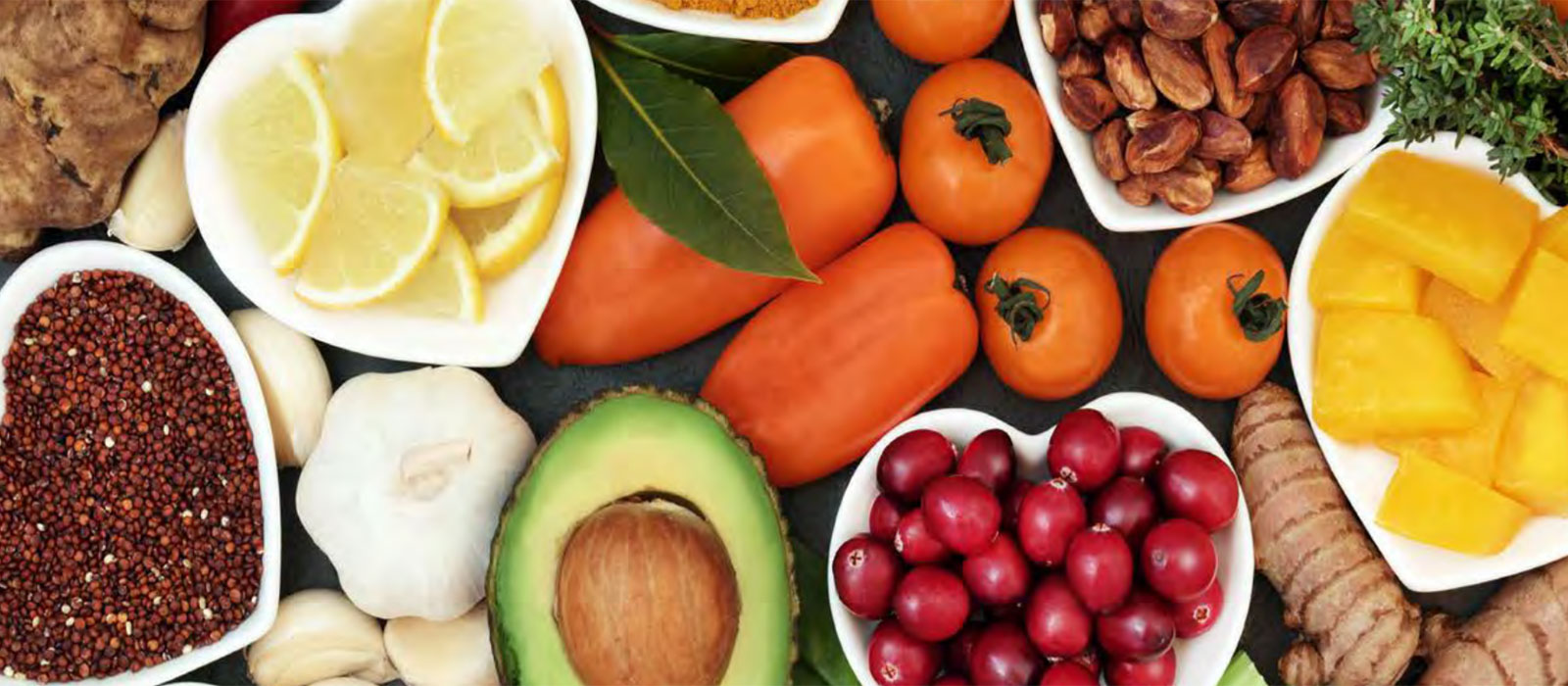Knowing which foods to eat more of and which foods to limit is a powerful way to prevent heart disease and improve your overall health. Use the steps below to work toward a more heart-healthy diet. Here are five easy ways to eat smart for your heart.
TIP #1 – Eat the Rainbow
Dark-green leafy vegetables help the body break down homocysteine, an amino acid that’s linked to a higher risk of cardiovascular disease. Natural sources of fiber and antioxidants, include spinach, kale, lettuce, swiss chard, collard greens, arugula and broccoli.
Purple foods such as eggplant, beets, purple potatoes or cauliflower are a great addition to your menu. It’s also a fun way to incorporate more color and vegetables onto your plate.
Red, orange, and yellow vegetables are high in beta-carotene, an important antioxidant that helps fight oxidation (oxidation leads to damage in the blood vessels). Include more foods like butternut squash, red and yellow peppers, and carrots.
TIP #2 – Eat Healthy Fats and Avoid Bad Fats
- Eat more of these: Good foods to eat more of include fatty fish, coconut, avocado, olive oil, and nuts, such as walnuts. Eating just 5 ounces of nuts per week is linked to decreased cardiovascular disease. Bonus points: Walnuts have more omega-3 fatty acids (which reduce bad cholesterol levels) than other nuts.
- Eat less of these: Avoid trans fats altogether. Watch for the words “partially hydrogenated oils" or "hydrogenated” on food labels and skip those foods. Also, avoid eating fried foods which are cooked in very unhealthy vegetable oils.
TIP #3 – Eat Lean Protein Sources and Reduce Fatty Meats
Lean proteins feed your body without providing unhealthy fats — which means thinking beyond steak. So limit red meat to lean cuts and serve it in smaller-sized portions. Instead, try fish like salmon, trout and tuna, which contain omega-3 fats, which help lower triglyceride levels and may lower blood pressure. Beans such as white, black, and kidney beans and other beans provide important fiber as well as protein.
TIP #4 – Be Selective of Carbs
Carbohydrates are all the sugars, fiber and starches in food that give your body energy. But some carbs are better for you than others. Eat "good" carbs from whole-food sources (such as squash or sweet potatoes) rather than processed and refined "bad" carbs (like white bread and pasta). Try to avoid candy, chips, cookies and other sources of sugary carbs.
TIP #5 – Watch What You Drink
Water is the best drink of choice; it has no calories and is important for every cellular process in your body. Beware of soda, alcohol, and other juices or sugary drinks, which are loaded with empty calories and sugar.
Taking these steps to enhance your diet will help your heart beat strong and continue to improve your overall health.
© 2019 Laura S. Conley, Phoenix Health and Wellness Solutions
